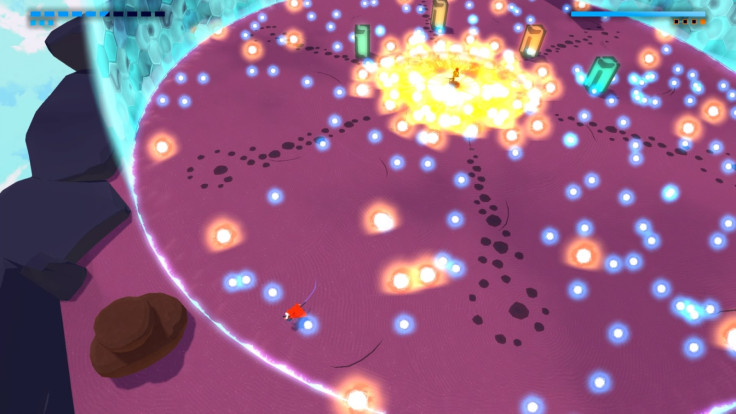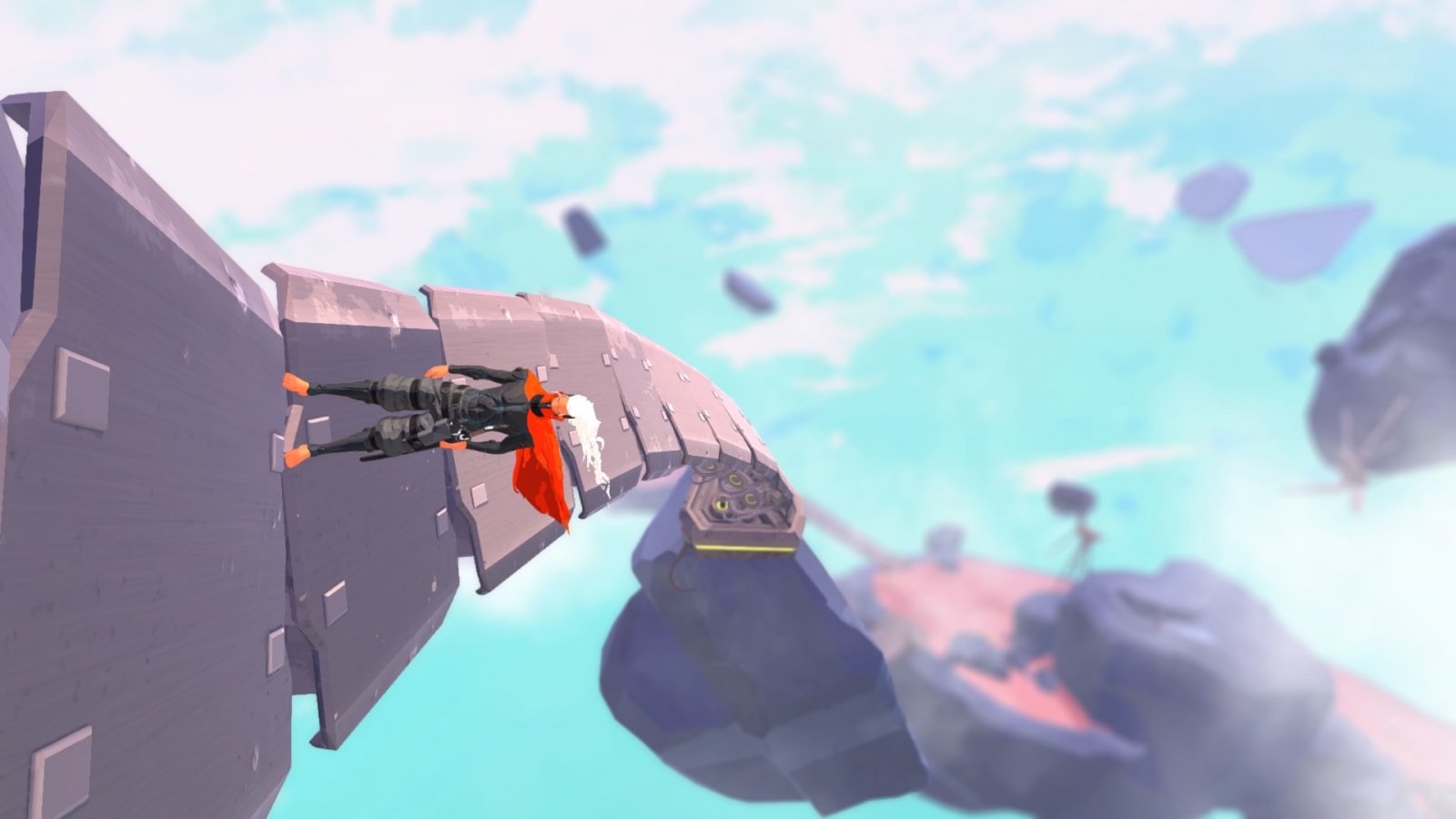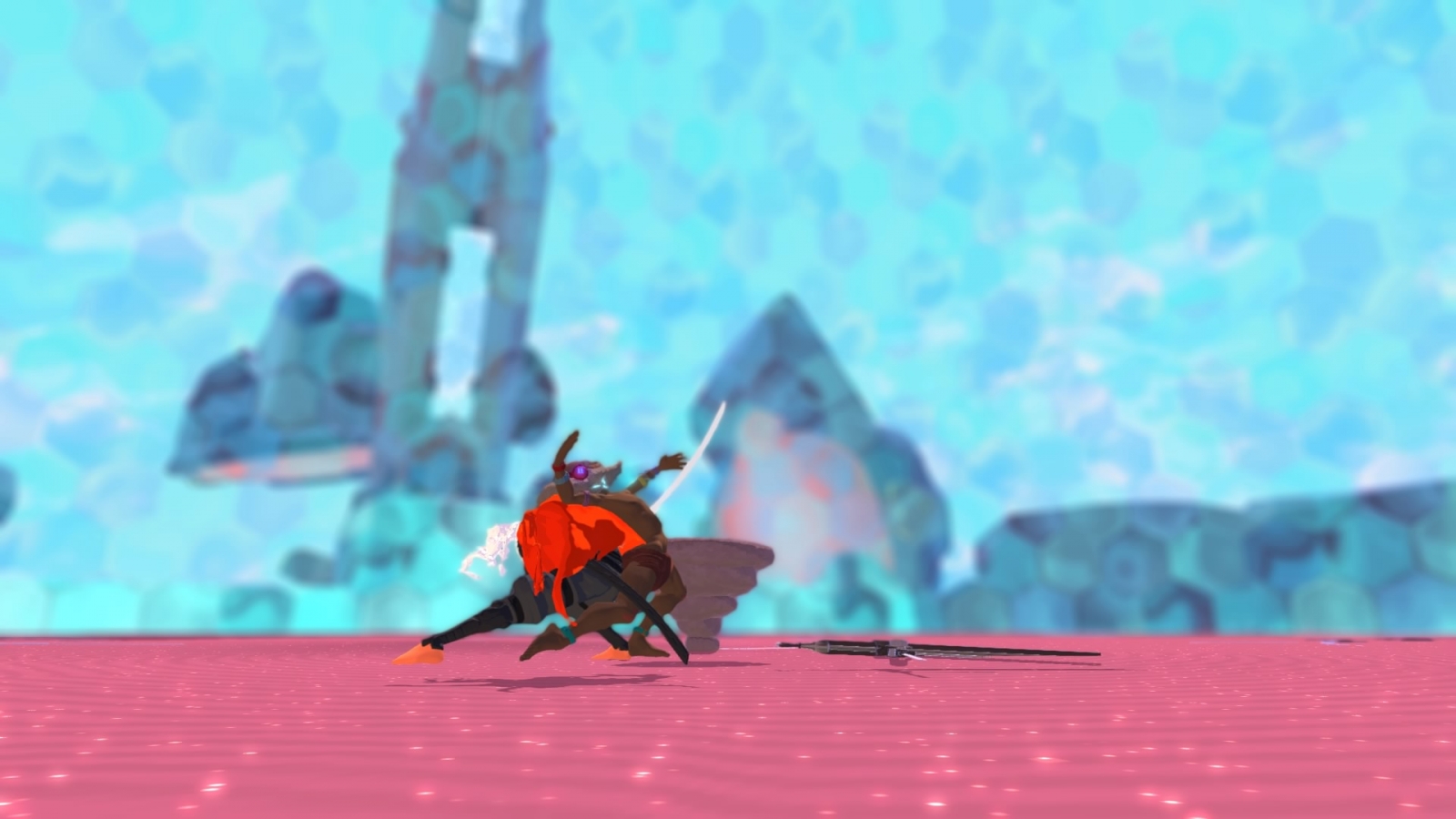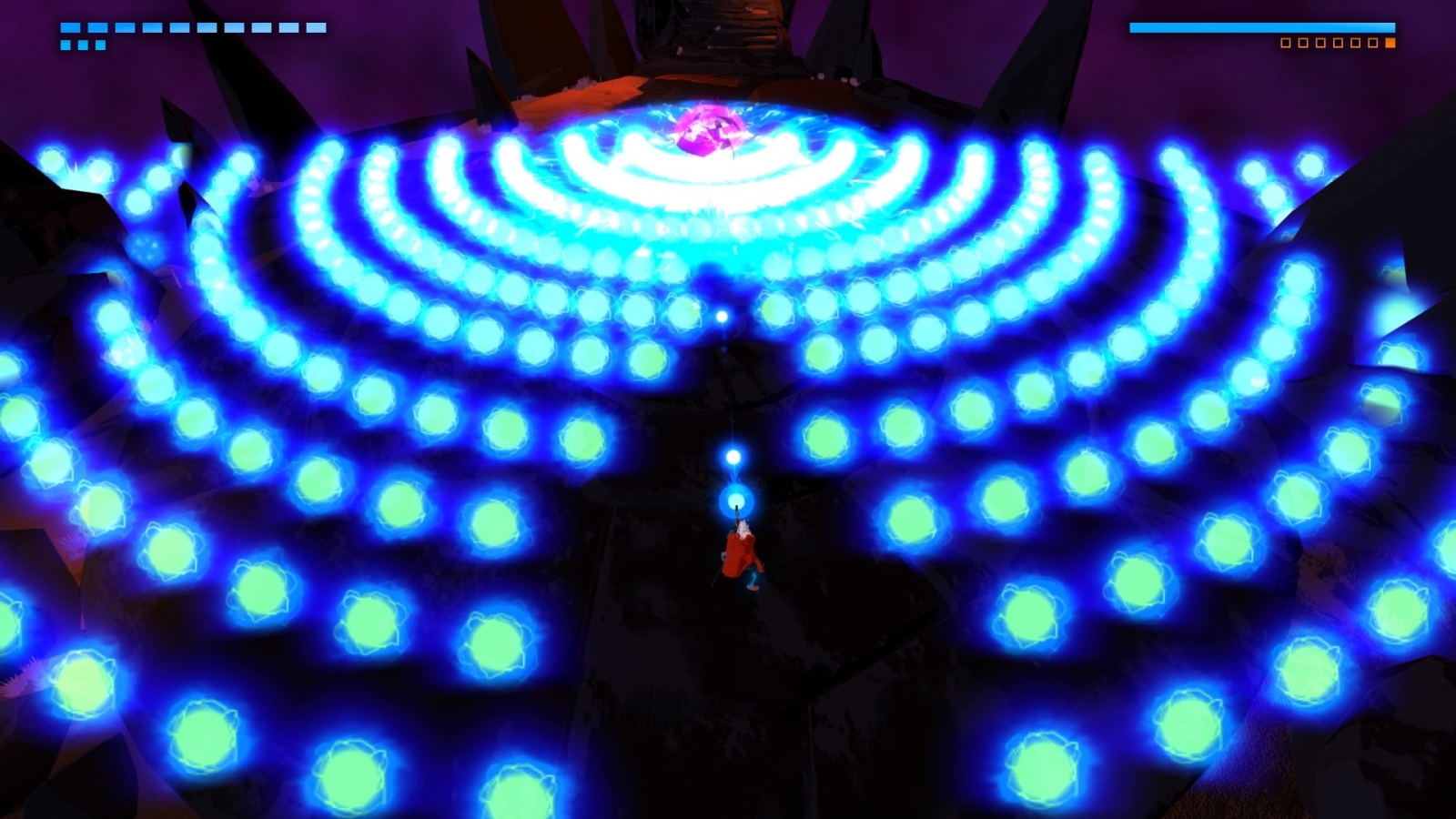Furi review: The Game Bakers' lustrous boss-rush battler has cult appeal but is no classic
A challenging hack-and-slash/bullet-hell hybrid that teeters on the brink of unfairness
Furi
Platforms: PS4 (tested), PC
Developer: The Game Bakers
Publisher: The Game Bakers
Release Date: Out Now
There's an interactive cooking pot on the The Game Bakers' website that I now can't stop thinking about when playing Furi – the French developer's frenzied, hack-and-slash indie game. Essentially a gag related to the studio's nomenclature, the pot seems to reveal a lot about what makes the good parts of Furi devilishly fun, but also what will surely prevent it from being remembered as a cult classic.
In it, you chuck ingredients into a cartoon cooking pot and are treated to a snippet of detail about the ingredient's corresponding game mechanic. "Game design is like cooking," it states.
Of the eight, four stick out for Furi's case: the flour (reflex), carrot (timing), cheese (precision) and a red meat chop (measurement). It's the latter that I got stuck on as it reads: "An input that's not right or wrong."
Furi's rapid-fire, isometric mix of dodge-or-die bullet-hell shmups and frantic Devil May Cry-esque swordplay sweats its "go hard, or go home" ethos from every single one of its distinctly retro pores. Every mistimed dash, greedy extra slash or momentary lapse in concentration is immediately punished with varying degrees of severity by its parade of offbeat bosses. The upside is that the amount of "well, that shouldn't have hit me" moments are insignificant, the downside is frustration.
In terms of overarching design, the basic principle of Furi's boss-rush structure is elegant. Each encounter with the game's promenade of "big bads" are multistage affairs, with squares underneath the foe's health bar indicating how many phases are left. With every new stage comes a fresh barrage of varied attacks, with some outright tearing up the rule book established in earlier phases. The game's silent, white-haired protagonist also has three separate health bars. Lose them all and the fight resets (quite literally) to square one.
It's an interesting method of giving players at least one second chance at a particular phase without sacrificing the game's challenging nature, and it allows for a variety of gameplay experiences born from a particular boss' theme and attack style. It also complements the claustrophobic nature of the arena environments that often feel like you've stepped into a weird, video game nightclub hybrid of the UFC's octagon, where progress comes to a grinding halt if you can't adapt to and overcome the violent bursts that are thrown at you.

At times, the streaks of glowing energy beams, bright flashes and overall techno-chic aesthetic transforms Furi into a zen-like experience where your brain is completely transfixed on waves of projectiles, swift dash patterns and balletic attack animations. But for all the share button-worthy killer combos you land, there are several illusion-shattering niggles.
Mostly this relates to Furi's health regain systems. Parries restore a slither of your health bar, but the tiny window to perform a parry is obnoxiously picky. Equally, health pick-ups appear in some boss encounters, but not others. This would be fine if this was a phase-exclusive deal, but the lack of restorative "orbs" – which are satisfyingly tricky to grab and few and far between when they do drop – across the entirety of some fights is infuriating.
With strict restrictions on when enemy combatants can receive damage and some brutal mid-stage boss phases causing you to replay lengthy sections of each fight, Furi borders on being categorically unfair at times, all while acting a little too gleefully antagonistic toward the player. This sour feeling stretches to the game's "easy" mode which it goads you to select upon death. Dubbed the "Promenade" difficulty setting, here trophies are turned off and the combat is an insulting cake-walk of going through the motions.
In between each intense battle, Furi provides moments of contemplative respite, but not in a good way. Set against awkward, static camera angles and controlling like a late 1990s 3D point-and-click adventure, you'll find yourself walking from arena-to-arena with nothing to do except attempting to fiddle with the analog stick until the lead character becomes unstuck from the scenery.




These sections are where Furi tells its tale of imprisonment and... well, I have no idea. Furi's storytelling gambit is established early on as a cat-man-thing tells you he'll explain the plot between each battle. It's bland, uninteresting and cryptic for no reason and when the skip icon appears before the introductory boss cutscenes (which are delightful), you'll feel pangs of irritation that the same option doesn't appear before each dreary, snail-paced detour.
Thankfully the game's visuals are a treat. Mixing tranquil pastel tones reminiscent of the forgotten PS3 and Xbox 360 title El Shaddai: Ascension of the Metatron with Transistor-like techno-chic. The rousing electro-synth 1980s-styled soundtrack also hits the spot in places, despite being entirely unmemorable after you're done.
The undisputed highlight of Furi though is the character design from Afro Samurai creator Takashi Okazaki. Although the protagonist looks like a Final Fantasy reject, the game's villains are uniformly superb, whether it's a Ghost in the Shell-like robot, a multi-faced jailer or a beardy, headphone-sporting telekinetic old man that looks a bit like Metal Gear Solid 3's The End.
Furi is an eye-popping, neon-bathed gauntlet which, in its best moments, is an adrenaline rush of lightning-fast, blink-and-you'll-die combat. At times, the delicate juggling act between bullet-dodging defence and stylishly-animated offence is undeniable, but as the game's frustrations begin to creep in it becomes impossible to maintain the kind of singular focus its stern difficulty level demands. There is no room for error, no lucky escapes, just an input that is right or wrong which leaves a sour taste. For all its intermittent brilliance, Furi too often lacks a key ingredient that will keep it from ascending beyond cult curio status: fun.
For all the latest video game news follow us on Twitter @IBTGamesUK.
© Copyright IBTimes 2025. All rights reserved.






















